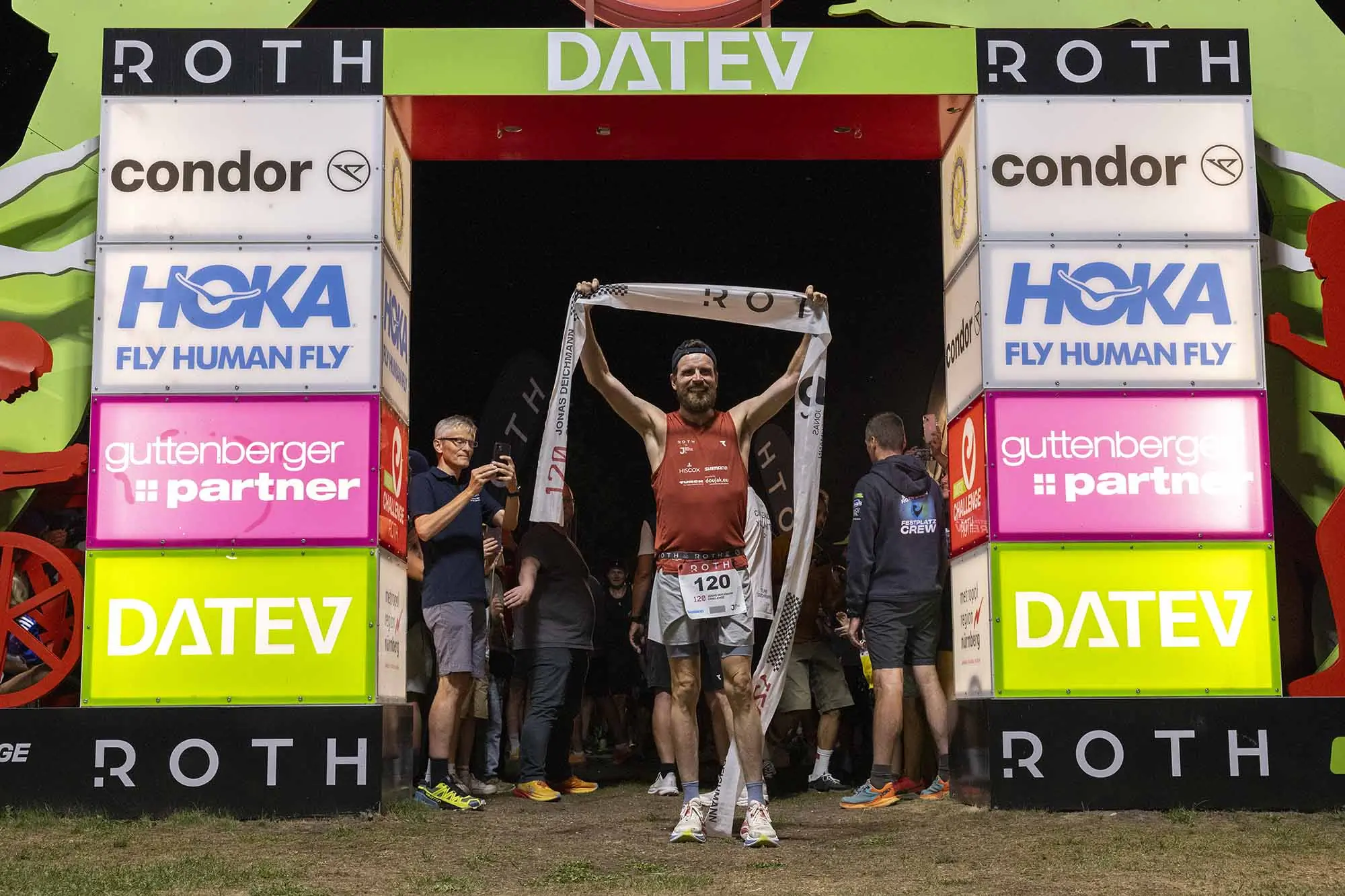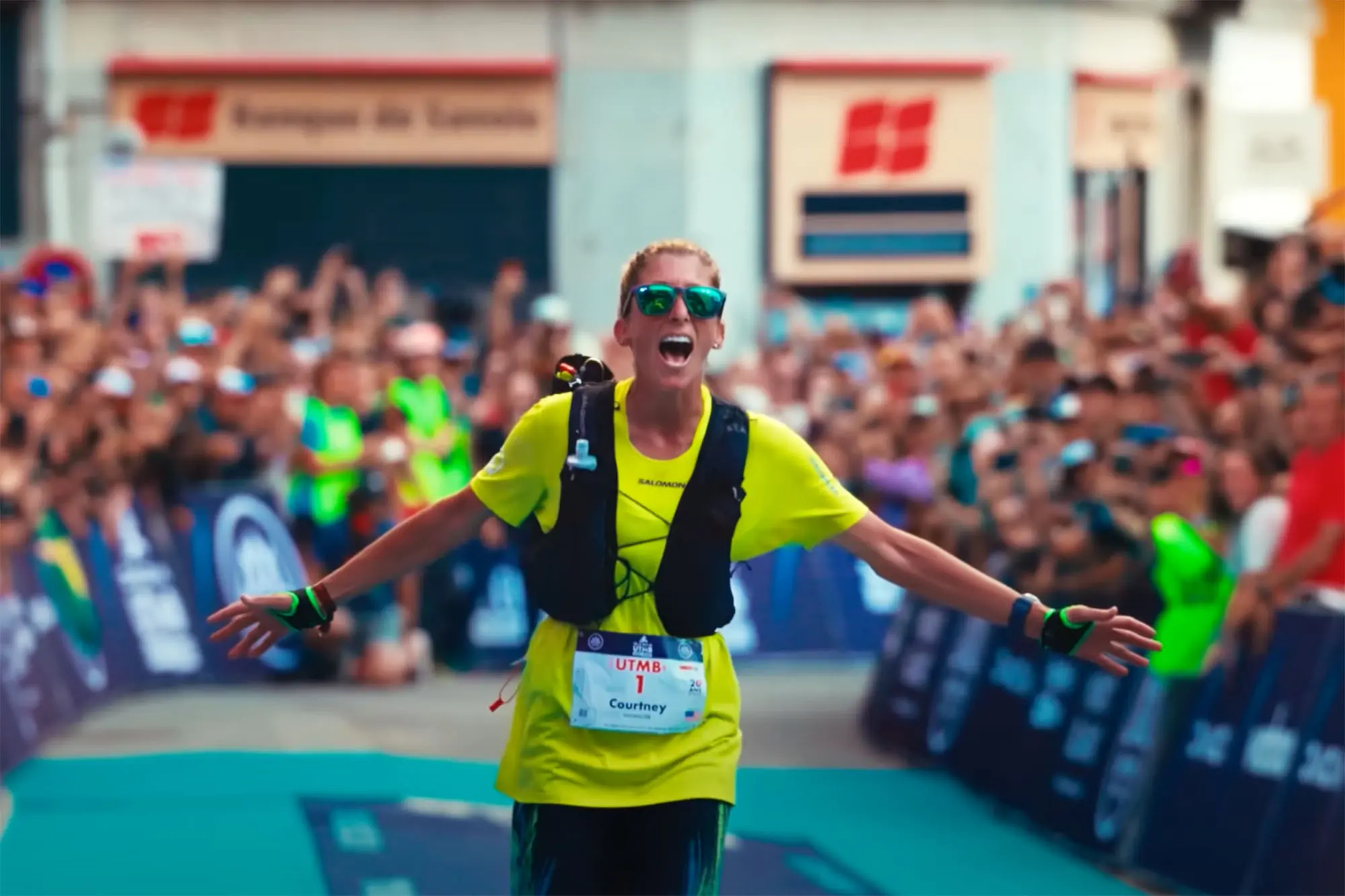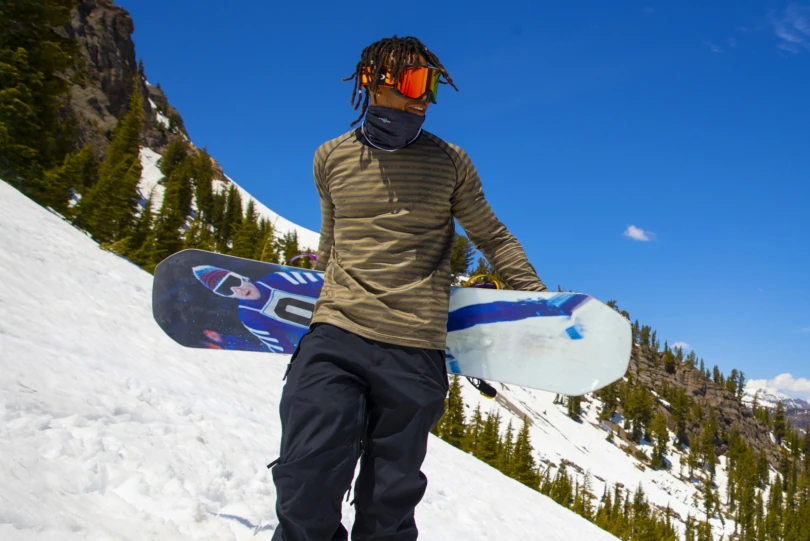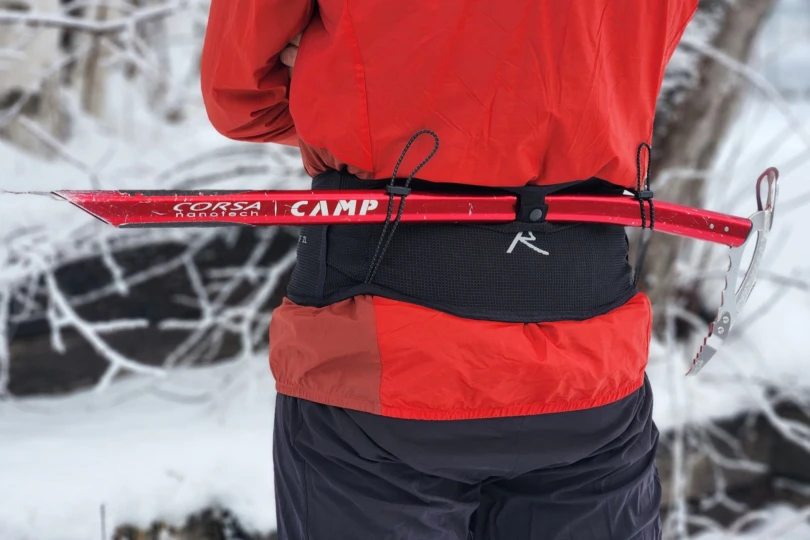German endurance athlete Jonas Deichmann has become an expert at pushing the limits of the human body. Over the last 8 years, he has pulled off some massive efforts that set new standards in outdoor sports.
The 37-year-old has set numerous world records for long-distance cycling, including the fastest time of the Pan-American (more than 14,000 miles in 98 days). And at the end of 2021, Deichmann completed the first-ever “triathlon around the world.” Over 14 months, he ran, cycled, and swam his way through 120 triathlons stretched across 18 countries.
But Deichmann isn’t one to keep still. This year, he finished what amounted to his toughest feat ever: 120 triathlons in 120 days. He completed the accomplishment last week, breaking the previous world record of 105 consecutive triathlons set by Sean Conway last year.
Calling it the Challenge 120, Deichmann started on May 9, doing his 2.4-mile swim, 112-mile bike ride, and 26.2-mile run every day. By the time he crossed the final finish line on September 5, he’d covered a staggering 283 miles swimming, 13,422 miles biking, and 3,147 miles running. He pulled off the challenge in Roth, Germany, considered Europe’s triathlon capital.
GearJunkie caught up with Deichmann this week to find out how he pulled off this insane feat — and what’s next in his endless quest for adventure.
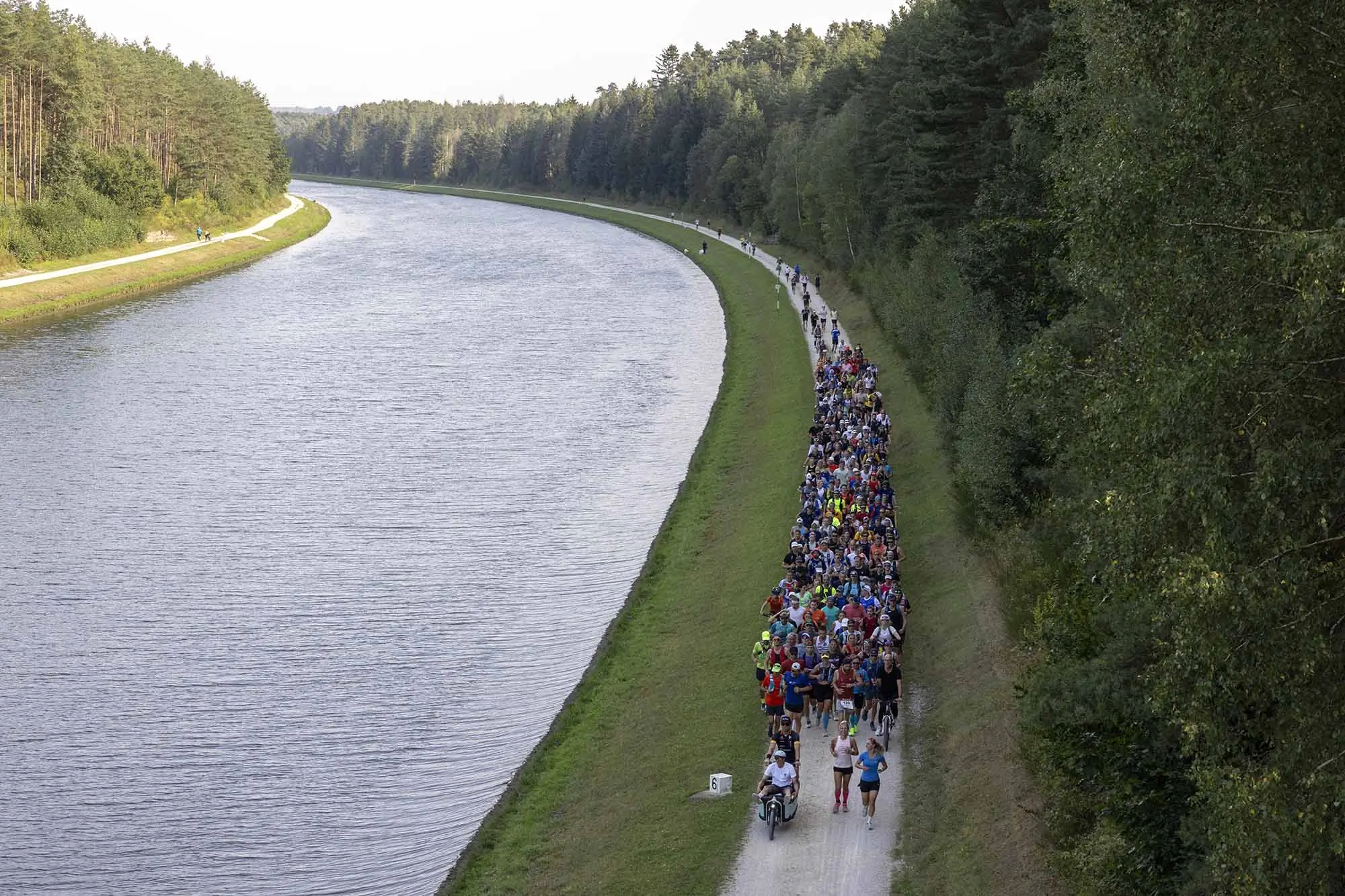
GearJunkie: You’ve done the Trans Am twice. You also did 120 triathlons over the year in 2020/2021. So, was this a walk in the park for you or what?
Deichmann: It’s the toughest challenge I’ve ever done. There’s no buffer. With my past projects, I always had the option of doing a little bit less on a bad day. If you get food poisoning one day, you can give your body a little time to recover, but not with this. This was by far the biggest challenge.
So, the next question is … why? Why would you do this? What drives you to complete these kinds of physical challenges?
In my past projects, I always combined adventure with endurance sports. I’ve been an adventurer all my life. But I was at the point where I wanted to see what was possible. Triathlon is the king discipline of endurance sports, and to do this in a row for me — I just wanted to find out what was possible … and I found it was possible.
It definitely brought me to my limits at some points. And the thing is, I could have continued. But there was no real reason to go on. The body had adapted and it became a normality for my body. The body can adapt to some really crazy things.
And records are there to be broken. If somebody comes along and does more [consecutive triathlons], I will be happy to help them. For me, I do every record only once. The next record I do will be in another country in the world.
I’m ready to see something new. That keeps life interesting.
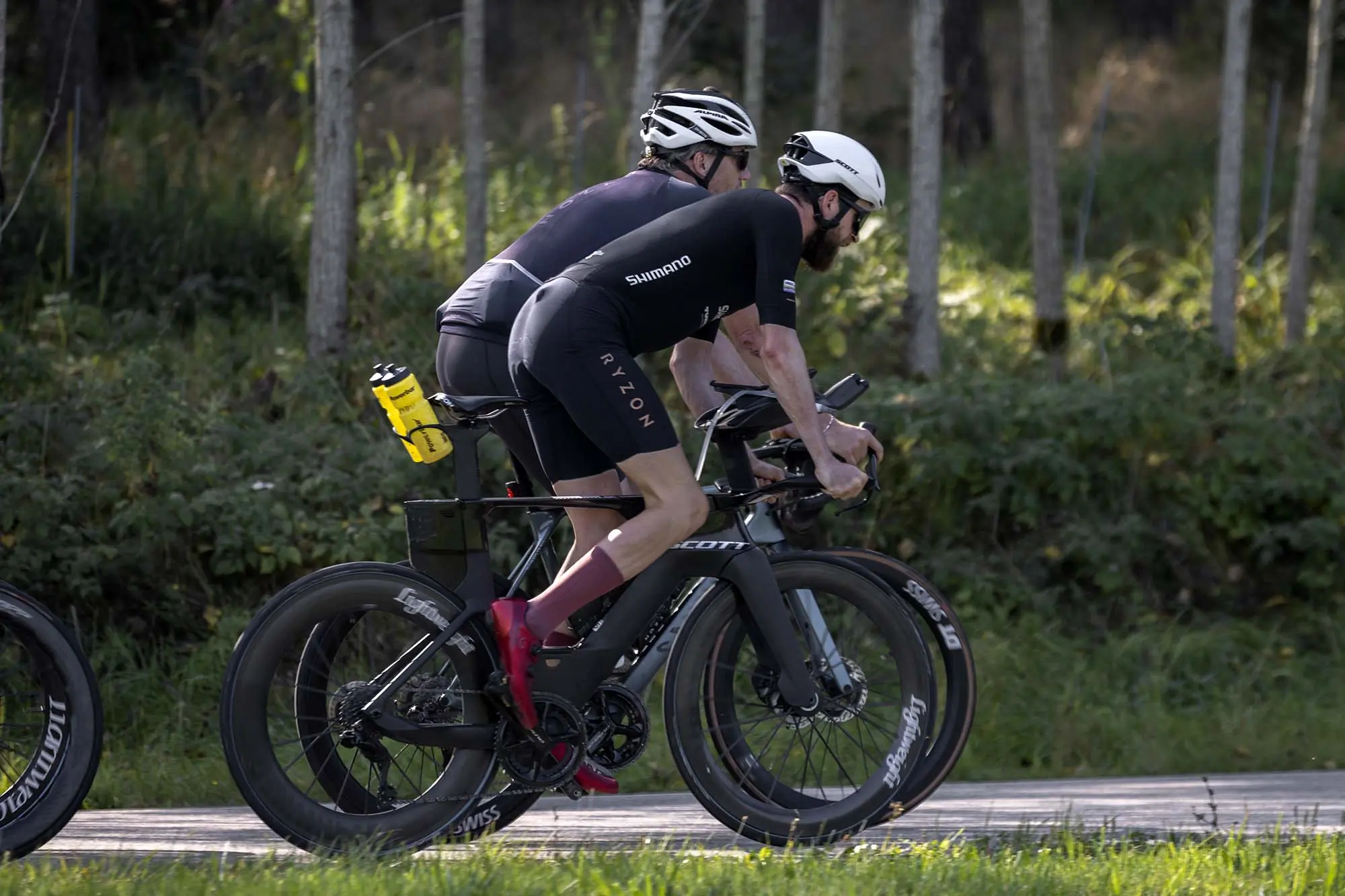
Was there any moment during this that felt particularly special to you? Or is it just a fog of exhaustion?
Most of the time, I feel quite well. And then there are days where I don’t feel good. My personal highlights were the people. It became crazy, a huge community event. The world record day on day 106, it was very special. It was the people who joined who make it so fun.
I wasn’t a single day alone. There was always somebody doing the triathlon with me every day. This was incredible. The thing I’m most proud of with this project is not the world record. It’s that a few hundred people did their first triathlon with me. Many did their first marathon with me. I’m so happy to help other people get off the couch and extend their own boundaries.
How did you prepare for this? Similar to how you prepare for other endurance feats, or did you do something different?
It was very different because this was a high-performance project. Last year, I did a double crossing of the U.S. For me, it was also a training for this project. Then I had 5 months of doing about 50 hours of sports per week, mostly swimming, cycling, and running. I trained around 22 to 23 times a week for this project.
To train your body for this, you simply have to get in the long hours. You need to train as hard as you ever have in your life. Otherwise, the shock to your body in the beginning will be too much. The first few were okay, and then after the fourth or fifth [triathlon], it gets hard. Then the pain slightly got less over time. But this is only possible if you have trained like hell before.
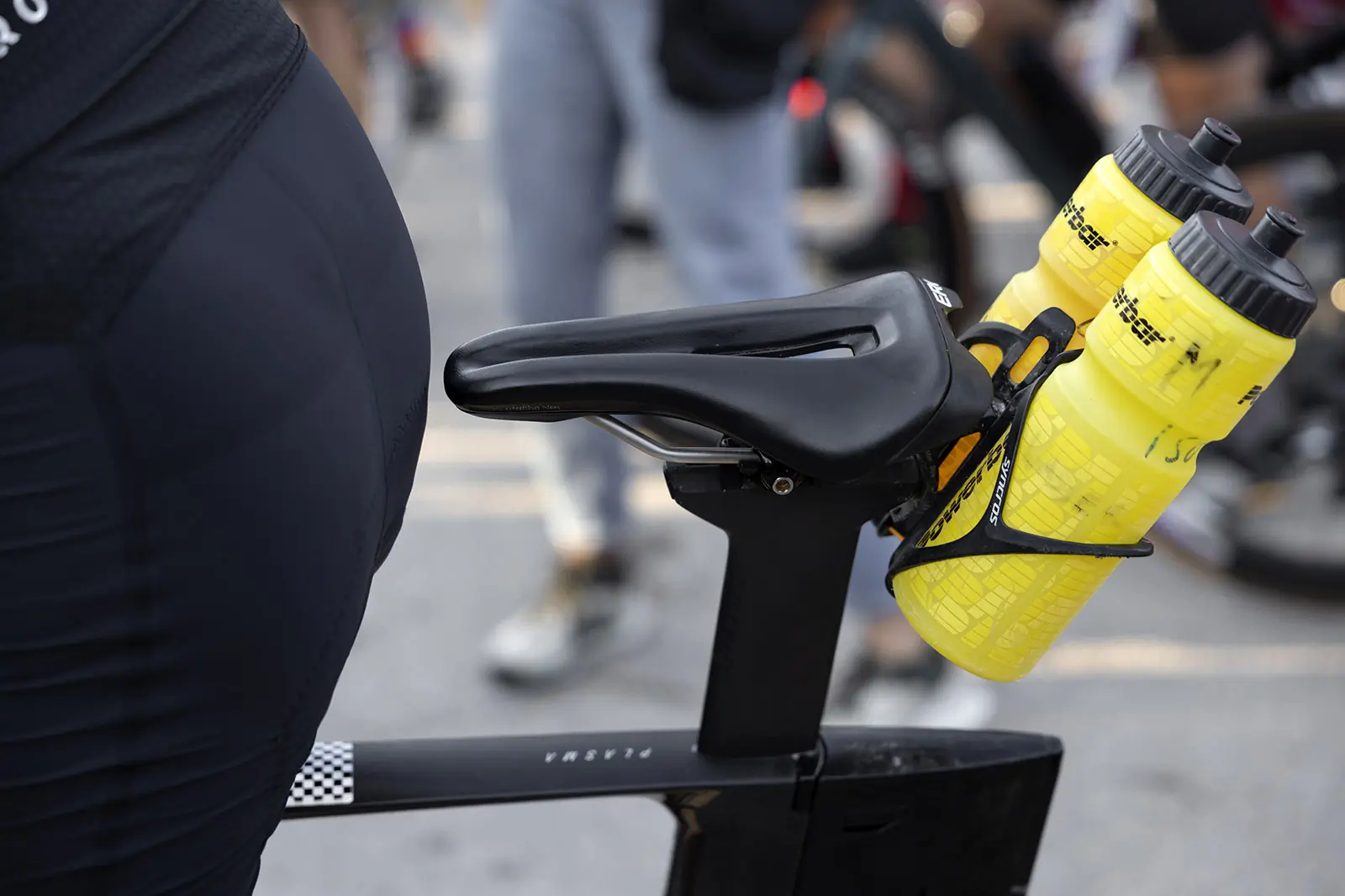



Is there any gear you used that made a big difference for you?
The SR Tri saddle from Ergon is simply super comfortable. I rode an average of 6.5 hours in the time trial position on the bike every day and had no complaints. On a project like this, everything in terms of gear has to be working perfect. There’s very little margin for error.
I’m eating 10,000 calories a day, that’s mostly in bar form, and I missed eating real food. So they [Ortlieb, sponsor] also built a pasta pack for me. When I was cycling, I could put it on my handlebars and eat pasta without stopping.
One of the biggest challenges of ultra-endurance challenges like this is keeping the body sufficiently fueled. How do you manage that?
I ate like 10,000 calories a day. I never spent 20 minutes without eating. I want to give my body a soft landing — it’s 10K calories a day I needed to eat. The best way to do that is in small portions continuously. I ate every 20 minutes. That’s a lot of gels and bars, of course. I don’t want to get stomach problems.
Many triathlon athletes talk about the “pain cave” to refer to their indoor training, as has Courtney Dauwalter. Do you have a method for coping with the mental strain?
The pain cave is basically the preparation. I don’t have the pain cave. I’m training outside almost all the time. I train outdoors. For me, the best mental training is to continuously set yourself challenges. Getting out of my comfort zone is where I grow mentally the most. I love it.
Do you have any advice for people thinking about starting their own physical challenges in the outdoors?
I’m an unconditional optimist. I simply believe that better times are coming, always. And they mostly do.
The hardest thing is getting to the starting line. In the end, it’s easier to stay in your comfort zone, but once you start, wonderful things happen. The best thing is simply to get started on your project now. Just go do it!
